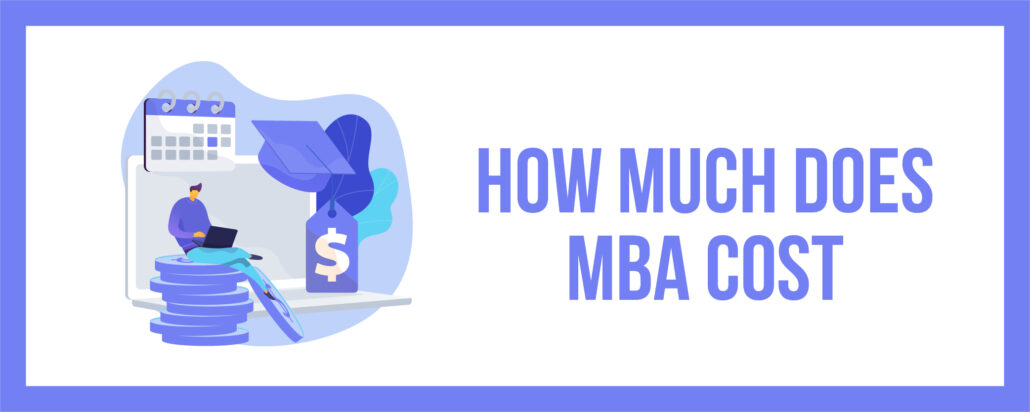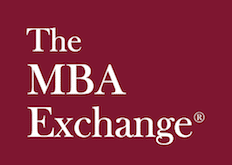
Are you contemplating pursuing an MBA but wondering about the costs involved?
You’re not alone.

According to a Graduate Management Admission Council (GMAC) survey, 52% of prospective MBA students are concerned about financing their education.
In this comprehensive guide, we will not only demystify the factors affecting the cost of an MBA, but we’ll also dive into different program types, financing options, and how to assess the return on investment (ROI) of this potentially life-changing decision.
So, are you ready?
Keep reading to discover how much an MBA might cost you and how to make this investment work in your favor.
Factors Affecting MBA Costs
Tuition Fees
Tuition fees are the most significant factor contributing to the total cost of an MBA. However, the fees can vary greatly depending on the institution and the reputation of the program. Top-tier MBA programs like those at Harvard Business School or MIT Sloan School can cost upward of $70,000 annually, while smaller, less prestigious institutions may charge around $20,000 or less annually. Public schools often have lower tuition costs than private schools, but out-of-state fees can increase the overall cost for non-resident students.
Geographic Location

The location of the business school offering the MBA program can also impact the cost. For example, schools in major metropolitan areas or countries with a high cost of living, like the United States or the United Kingdom, tend to have higher tuition fees. On the other hand, MBA programs in countries with a lower cost of living may be more affordable.
Program Format
The format of the MBA program can also influence the cost. For example, full-time programs are typically more expensive than part-time or online programs due to the higher faculty involvement and required campus resources. However, full-time programs also usually offer a more immersive learning experience and allow students to complete their degrees more quickly.
Types of MBA Programs With Average MBA Cost
Full-time MBA Programs
Full-time MBA programs are the most traditional format, requiring students to attend classes on campus for 18 to 24 months. These programs are typically the most expensive, with tuition fees for top-ranked MBA programs ranging from $100,000 to $200,000 for the entire program. In addition to tuition costs, living expenses, and health insurance can add to the overall cost of attending a full-time MBA program.
Part-time MBA Programs

Part-time MBA programs are designed for working professionals who want to continue their education while maintaining their careers.
Depending on the institution, these programs generally take three to four years to complete and may have lower tuition fees than full-time programs. In addition, part-time MBA students may save money on living expenses, as they can continue working while pursuing their degree.
On average, part-time MBA programs cost between $20,000 and $100,000 or more in total, with an average cost of around $60,000.
Executive MBA Programs
Executive MBA (EMBA) programs are designed for experienced professionals who want to develop leadership and management skills. These programs typically take two years to complete and often require students to attend classes on weekends or during intensive residencies. As a result, EMBA programs can be costly, with tuition fees similar to full-time MBA programs at top-tier institutions.
However, many EMBA students receive tuition assistance from their employers, reducing the program’s actual cost.
The cost for Executive MBA programs can vary greatly, typically ranging from $50,000 to well over $150,000, with an average cost of around $80,000.
Online MBA Programs
An online MBA program provides the most flexibility, allowing students to complete their coursework on their own schedule and from any location. In addition, these online programs can be more affordable, with online MBA cost options often being lower than traditional formats.
However, online MBA programs may not offer the same level of networking opportunities or campus resources as their on-campus counterparts. So, online students enrolling in an online program must weigh the pros and cons of an online degree.
You’ll also need to consider that even the top online MBA programs are sometimes viewed as “less than” when compared to traditional programs. Therefore, online learners will want to ensure that the online business schools they consider are accredited.
On average, the tuition for online MBA programs can range from as low as $10,000 to as high as $80,000 or more.
Financing Options
Pursuing an MBA can be a significant financial investment, with average MBA costs for the top 25 business schools coming in at around the 200k mark. But, of course, MBA tuition at top-ranked MBA costs can run even higher than this.
Thankfully, several financing options are available to help students manage the costs while attending any of the top MBA programs. How much financial aid is needed will depend on whether you’re entering a public school, getting help from private organizations, residency status, campus fees, and many other factors.
Scholarships and Grants
There is lots of free money out there for students pursuing an MBA. Many institutions offer scholarships and grants to MBA students based on factors such as academic achievement, leadership potential, or financial need.
These awards can significantly reduce the overall cost of an MBA program. The institutions themselves fund some scholarships and grants, while external organizations or foundations sponsor others. Federal grants funded by the government can also be used to cover the average tuition cost. However, they aren’t always available if you’re interested in private schools.
Student Loans

Student loans are a standard financing option for MBA students. This is especially true for those whose cost factors also include living costs.
These loans can come from government programs (federal loans) or private lenders, and they typically offer flexible repayment options and competitive interest rates. However, it’s important to carefully consider the long-term impact of taking on student loan debt, as it may take several years to repay after graduation. This is especially true with private student loans, as they can only sometimes be discharged.
Employer Sponsorship
Some employers may be willing to sponsor their employees’ pursuit of an MBA, mainly if the degree directly relates to their job responsibilities or career advancement within the company. Employer sponsorship can cover a portion or the total cost of tuition. Still, it may come with certain conditions, such as a commitment to work for the company for a specified period after graduation.
Federal and State Financial Aid Programs
Federal government programs, such as grants and work-study opportunities, can help students pursue an MBA. Eligibility for these programs depends on factors like financial need, academic merit, and enrollment status. State governments may also offer financial assistance programs for public school in-state learners. Students must complete the Free Application for Federal Student Aid (FAFSA) to apply for federal or state financial aid.
Assessing the ROI of an MBA
When considering the cost of an MBA, it’s crucial to weigh the degree’s potential return on investment (ROI). An MBA can significantly boost earning potential, career advancement opportunities, and professional networking. However, it’s essential to carefully evaluate the reputation of the program, the quality of the curriculum, and the strength of the alumni network before making a decision.
Earning Potential
One of the primary reasons students pursue an MBA is to increase their earning potential. According to a survey by GMAC, MBA graduates can expect an average annual salary increase of 75% after graduation. This higher salary can help offset the costs of the degree program and provide a strong ROI in the long run. Of course, you’ll want to ensure that you have room for advancement to make the average total cost worth the investment.
Career Advancement
An MBA degree can open doors to new career opportunities and accelerate career growth. Graduates with an MBA often find themselves in leadership positions, benefiting from the business administration skills and knowledge acquired during their studies. This career advancement can help justify the investment in an MBA program.
Networking Opportunities
The connections made during an MBA program can be invaluable for career growth. In addition, MBA students often have access to a vast network of alumni, faculty, and fellow students, providing ample opportunities for collaboration and mentorship in person too. This solid professional network can lead to job opportunities and long-term career success.
Conclusion
The cost of an MBA can vary greatly depending on factors such as the institution, geographic location, and program format. To make an informed decision, prospective students should carefully consider their career goals, the type of MBA program that best aligns with them, and the available financing options. They should also work with an MBA admissions consultant that can help them get into their program of choice. Ultimately, the investment in an MBA can provide significant benefits in terms of career advancement, earning potential, and professional development.
MBA Cost FAQs
The estimated total cost of an MBA can vary significantly depending on factors such as the institution, geographic location, and program format. Generally, the total cost of an MBA can range from as low as $20,000 to as high as $200,000 or more for top-tier programs. This range includes tuition fees, living expenses, health insurance, and additional costs such as textbooks, travel expenses, and other fees.
The value of an MBA depends on each individual’s career goals and circumstances. However, for many professionals, an MBA can lead to higher salaries, career advancement, and valuable networking opportunities, making it a worthwhile investment.
To save money on MBA costs, consider attending a public university or exploring online or part-time programs. Additionally, research financial aid options such as scholarships, grants, employer sponsorship, and government-funded assistance programs.
Online MBA programs often have lower tuition fees compared to traditional full-time programs due to the reduced overhead costs associated with on-campus resources. However, the actual cost will vary depending on the institution and program quality.
Yes, many students choose to work while pursuing an MBA, especially those enrolled in part-time, executive, or online programs designed for working professionals. Balancing work and education can help offset the costs of the degree and minimize the impact of lost wages during the study period.
In addition to tuition fees, students should consider other costs such as living expenses, health insurance, travel expenses, and fees for textbooks or other course materials. These costs can vary depending on the program format and location of the business school.
When selecting an MBA program, consider factors such as tuition fees, program format, reputation, curriculum quality, and alumni network strength.
MBA students can explore financing options such as scholarships, grants, student loans, and employer sponsorship to help cover the costs of their education.
Bryce Welker is an active speaker, blogger, and regular contributor to Forbes, Inc.com, and Business.com where he shares his knowledge to help others boost their careers. Bryce is the founder of more than 20 test prep websites that help students and professionals pass their certification exams.












